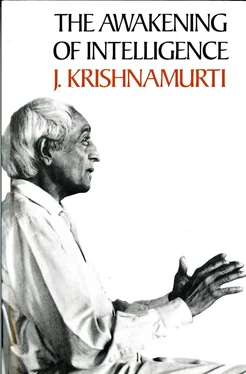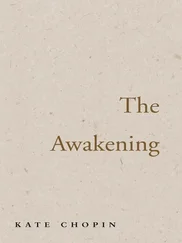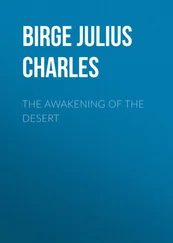J. Krishnamurti - The Awakening of Intelligence
Здесь есть возможность читать онлайн «J. Krishnamurti - The Awakening of Intelligence» — ознакомительный отрывок электронной книги совершенно бесплатно, а после прочтения отрывка купить полную версию. В некоторых случаях можно слушать аудио, скачать через торрент в формате fb2 и присутствует краткое содержание. Жанр: unrecognised, на английском языке. Описание произведения, (предисловие) а так же отзывы посетителей доступны на портале библиотеки ЛибКат.
- Название:The Awakening of Intelligence
- Автор:
- Жанр:
- Год:неизвестен
- ISBN:нет данных
- Рейтинг книги:5 / 5. Голосов: 1
-
Избранное:Добавить в избранное
- Отзывы:
-
Ваша оценка:
- 100
- 1
- 2
- 3
- 4
- 5
The Awakening of Intelligence: краткое содержание, описание и аннотация
Предлагаем к чтению аннотацию, описание, краткое содержание или предисловие (зависит от того, что написал сам автор книги «The Awakening of Intelligence»). Если вы не нашли необходимую информацию о книге — напишите в комментариях, мы постараемся отыскать её.
The Awakening of Intelligence — читать онлайн ознакомительный отрывок
Ниже представлен текст книги, разбитый по страницам. Система сохранения места последней прочитанной страницы, позволяет с удобством читать онлайн бесплатно книгу «The Awakening of Intelligence», без необходимости каждый раз заново искать на чём Вы остановились. Поставьте закладку, и сможете в любой момент перейти на страницу, на которой закончили чтение.
Интервал:
Закладка:
Now, to look without the observer! You do this when you are completely attentive. Do you know what it means to be attentive? Don’t go to school to learn to be attentive! To be attentive means to listen without any interpretation, without any judgement—just to listen. When you are so listening there is no boundary, there is no “you” listening. There is only a state of listening. So when you observe your conditioning, the conditioning exists only in the observer, not in the observed. When you look without the observer, without the “me” —his fears, his anxieties and all the rest of it—then you will see, you enter into a totally different dimension.
NEW YORK CITY
24 APRIL 1971
3
RELIGIOUS EXPERIENCE. MEDITATION
Is there a religious experience? Search for truth; the meaning of search. “What is a religious mind?” “What is the quality of mind which is no longer experiencing?” Discipline; virtue; order. Meditation is not an escape. The function of knowledge and freedom from the known. “Meditation is to find out if there is a field not already contaminated by the known.” “Thefirst step is the last step.”
Questions: The analogy of dirt; awareness; consciousness; love; psychological time .
KRISHNAMURTI: We said that we would talk over together a very complex problem, which is: is there a religious experience, and what are the implications of meditation? If one observes, it appears that throughout the world man has always been seeking something beyond his own death, beyond his own problems, something that will be enduring, true and timeless. He has called it God, he has given it many names; and most of us believe in something of that kind, without ever actually experiencing it.
Various religions have promised that if you believe in certain forms of rituals, dogmas, saviours, you might, if you lead a certain kind of life, come upon this strange thing, whatever name one likes to give to it. And those who have directly experienced it, have done it according to their conditioning, to their belief, to their environmental and cultural influences.
Apparently religion has lost its meaning, because there have been religious wars; religion does not answer all our problems, religions have separated peoples. They have brought about some kind of civilising influence, but they have not changed man radically. When one begins to enquire if there is such a thing as religious experience and what that experience is, why one calls it “religious”, obviously one must first have a great deal of honesty. It is not to be honest according to a principle or a belief, or to some form of commitment, but to honestly see things exactly as they are, without any distortion, not only outwardly, but also inwardly: never to deceive oneself. For deception is quite easy if one craves for some kind of experience, call it religious or otherwise—if one takes a trip and so on. Then you are bound to be caught in some kind of illusion.
One has to find out for oneself, if one can, what religious experience is. One needs a great sense of humility and honesty, which means never to ask for experience, never to demand for oneself a reality or an achievement. So one has to look very closely at one’s own desires, attachments and fears and understand them wholly, if one can, so that the mind is in no way distorted, so that there will be no illusion, no deception. And one has to ask also: what does it mean to experience?
I do not know if you have gone into that question at all. Most of us are bored with the usual experiences of every day. We are tired of them all, and the more one is sophisticated, intellectual, the more one wants to live only in the present—whatever that may mean—and invent a philosophy of the present. The word experience means to go through, to go right to the end and finish with it. But unfortunately for most of us, every experience leaves a scar, a memory, pleasant or unpleasant, and we want to retain only the pleasant ones. When we are asking for any kind of spiritual, religious, or transcendental experience, we must try to find out first of all whether there is such an experience, and also what experience itself means. If you experience something and you cannot recognise it, then that experience ceases to be. One of the essential meanings of experience is recognition. And when there is recognition, it has already been known, has already been experienced, otherwise you could not recognise it.
So when they talk about religious, spiritual, or transcendental experience—that word is so misused—you must already have known it, to be able to recognise that you are experiencing something other than an ordinary experience. It seems logical and true that the mind must be able to recognise the experience, and recognition implies something you have already known, therefore it is not new.
When you want experience in the religious field, you want it because you have not solved your problems, your daily anxieties, despairs, fears and sorrows, therefore you want something more. In that demand for more lies deception. That is fairly logical and true, I think. Not that logic is always true, but when one uses logic and reason healthily, sanely, one knows the limitations of reason. The demand for wider, deeper, more fundamental experiences only leads to a further extension of the path of the known. I think that is clear, and I hope we are communicating, sharing with each other.
Then also in this religious enquiry one is seeking to find out what truth is, if there is a reality, if there is such a thing as a state of mind that is beyond time. Search again implies a seeker—doesn’t it? And what is he seeking? How will he know that what he has found in his search is true? Again, if he finds what is true—at least what he thinks is true—that depends on his conditioning, on his knowledge, on his past experiences; search then merely becomes a further projection of his own past hopes, fears and longings.
A mind that is enquiring—not seeking—must be totally free of these two, that is, of the demand for experience and the search for truth. One can see why, because when you are seeking, you go to various teachers, read various books, join various cults, follow various gurus and all the rest of it, like window-shopping. Such a search has no meaning whatsoever.
So when you are enquiring into this question, “What is a religious mind, and what is the quality of mind that is no longer experiencing anything at all?”—you must find out if the mind can be free from the demand for experience and can completely end all seeking. One has to investigate without any motive, without any purpose, the facts of time and if there is a timeless state. To enquire into that means to have no belief whatsoever, not to be committed to any religion, to any so-called spiritual organisation, not to follow any guru, and therefore to have no authority whatsoever—including that of the speaker especially. Because you are very easily influenced, you are terribly gullible, though you may be sophisticated, may know a great deal; but you are always eager, always wanting, and therefore are gullible.
So a mind that is enquiring into the question of what is religion, must be entirely free of any form of belief, any form of fear; because fear, as we explained the other day, is a distorting factor, bringing about violence and aggression. Therefore the mind that is enquiring into the quality of the religious state and movement, must be free of this. That demands great honesty and a great sense of humility.
For most of us, vanity is one of the major impediments. Because we think we know, because we have read a great deal, because we have committed ourselves, have practised this or that system, followed some guru peddling his philosophy, we think we know, at least a little bit, and that’s the beginning of vanity. When you are enquiring into such an extraordinary question, there must be the freedom of actually not knowing a thing about it. You really don’t know, do you? You don’t know what truth is, what God is—if there is such a thing—or what is a truly religious mind. You have read about it, people have talked about it for millennia, have built monasteries, but actually they are living on other people’s knowledge, experience and propaganda. To find out, surely one must put aside all that completely, and therefore the enquiry into all this is a very serious matter. If you want to play with it, there are all kinds of so-called spiritual, religious entertainments, but they have no value whatsoever to a serious mind.
Читать дальшеИнтервал:
Закладка:
Похожие книги на «The Awakening of Intelligence»
Представляем Вашему вниманию похожие книги на «The Awakening of Intelligence» списком для выбора. Мы отобрали схожую по названию и смыслу литературу в надежде предоставить читателям больше вариантов отыскать новые, интересные, ещё непрочитанные произведения.
Обсуждение, отзывы о книге «The Awakening of Intelligence» и просто собственные мнения читателей. Оставьте ваши комментарии, напишите, что Вы думаете о произведении, его смысле или главных героях. Укажите что конкретно понравилось, а что нет, и почему Вы так считаете.












